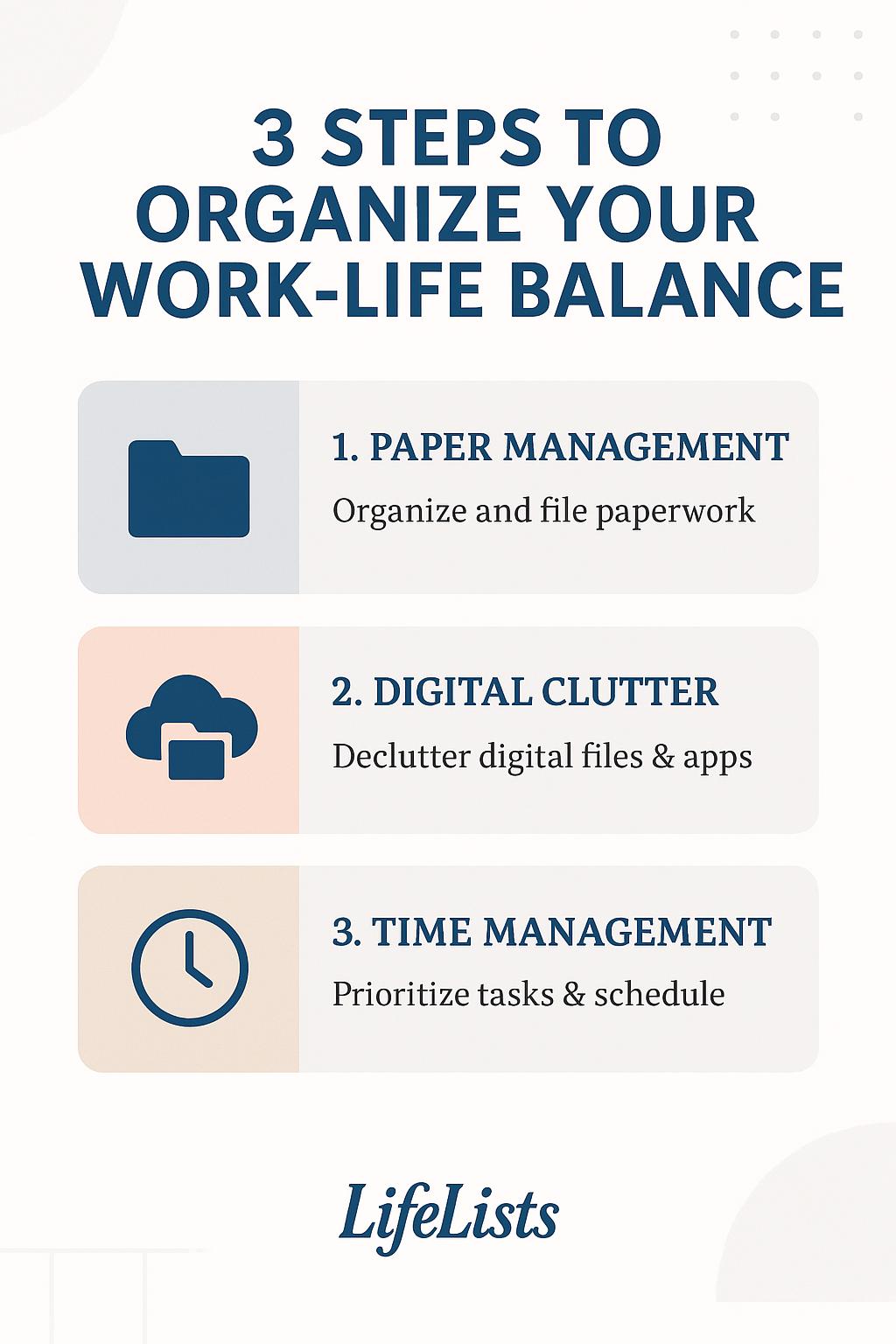When I think of work and office life, I usually equate it with paperwork, finances, productivity, and time management. As our workloads increase, the systems we have in place become crucial for managing daily activities while still carving out time to breathe. Whether at home or at work, strong organization systems help you stay on track, manage time, and reduce stress. Let’s explore how to create better balance and flow in your day-to-day life in three steps:
1. Paper Management
Paperwork has a sneaky way of piling up—and with it comes decision fatigue. The key to efficiency in your work environment is creating a streamlined filing system. As a Professional Organizer, I’ve helped clients get control of their paper chaos with easy-to-follow systems like categorized home file tabs and tickler files that make sorting and accessing paperwork much faster.
Why it matters:
Getting your paper under control reduces stress, saves you money on late fees, and ensures you don’t miss important deadlines or opportunities buried in clutter.
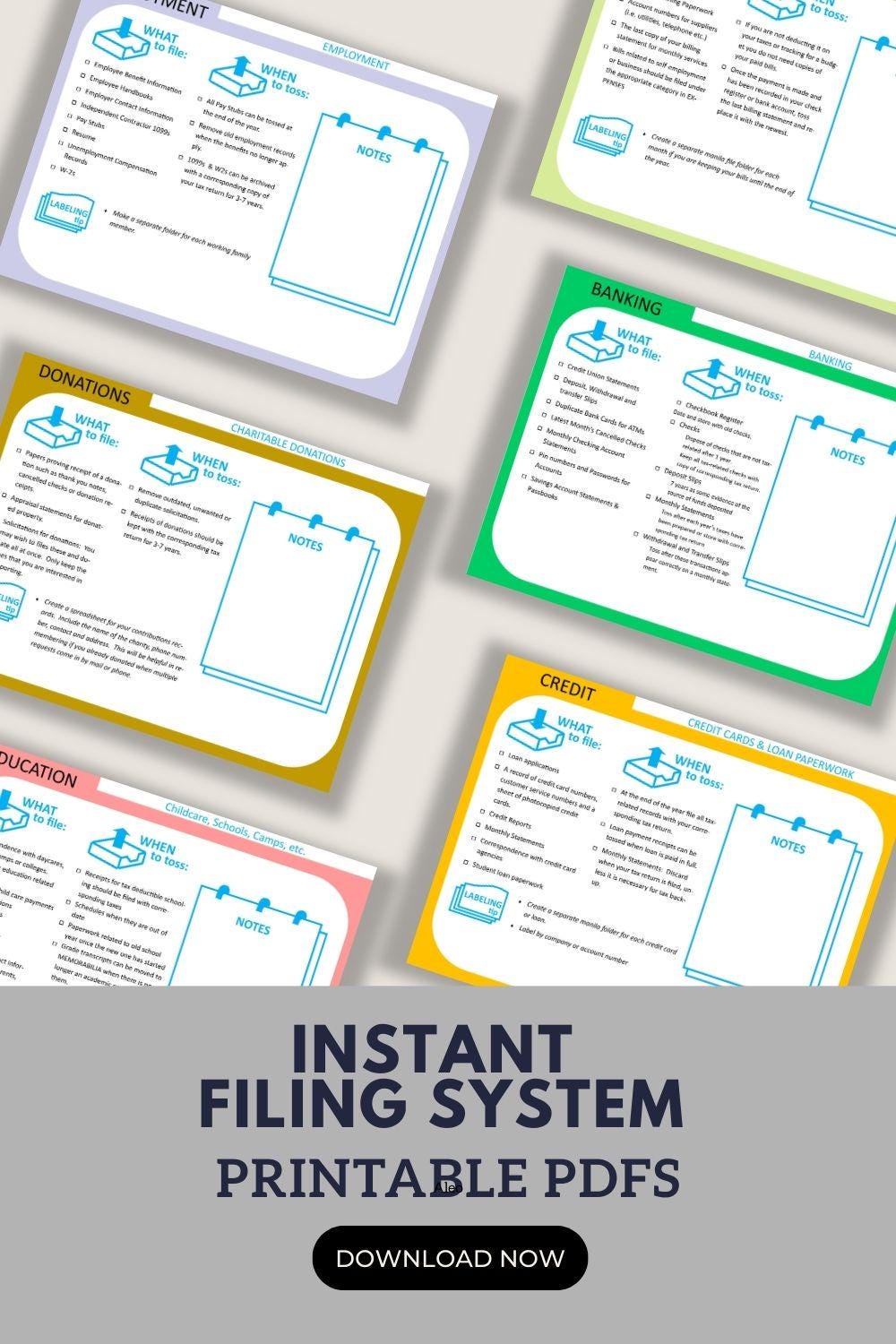
2. Decluttering Digital Clutter
After taming your paper trail, apply the same structure to your digital life. Create digital folders that mirror your paper system, organize your files, delete unused apps, and limit distracting notifications. A digital clean-up can drastically improve focus and efficiency.
Tip: Use features like password logs and file naming conventions to keep your digital systems running smoothly. If it’s overwhelming, consider hiring an IT expert or taking short courses on software you use often.
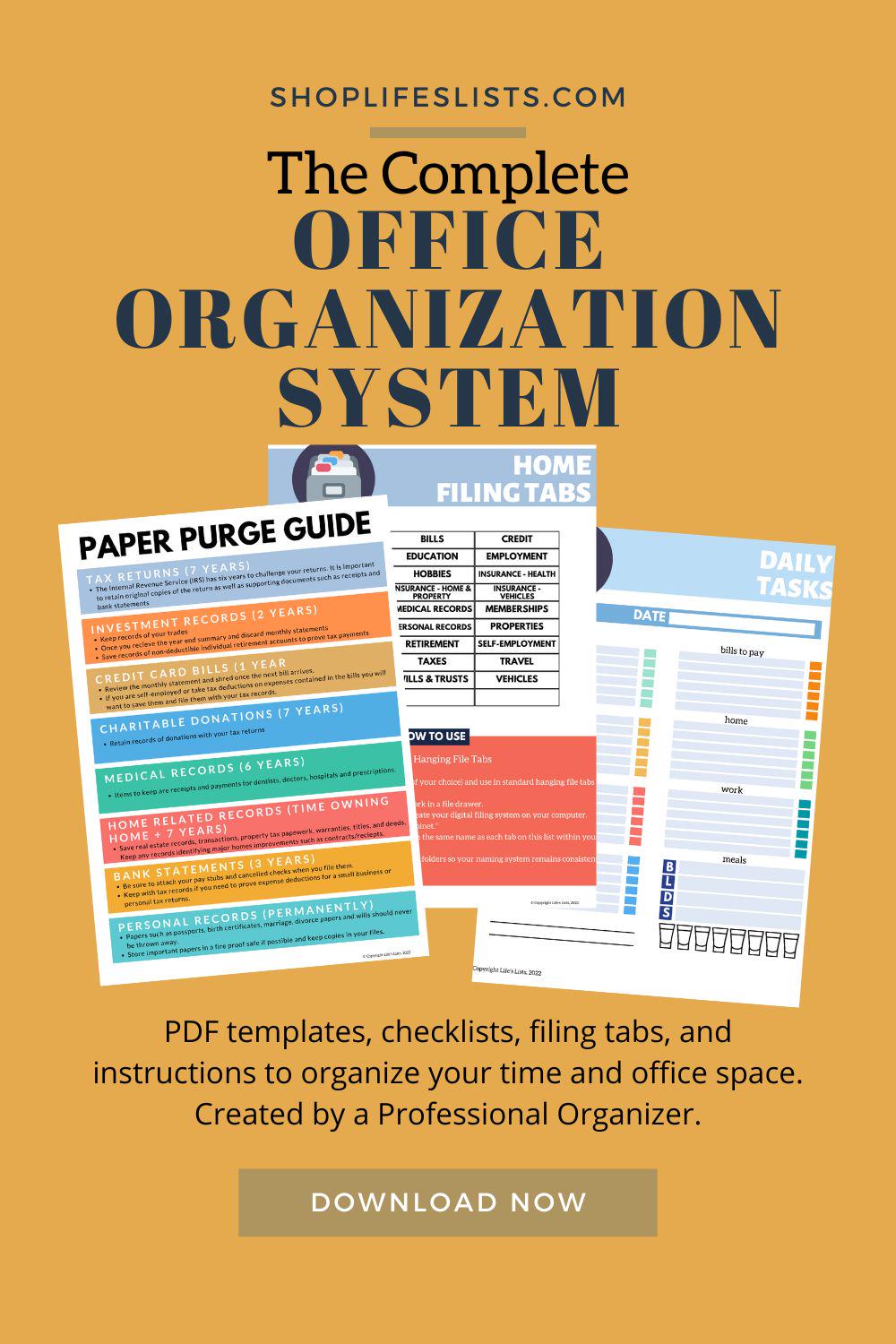
3. Time Management
We often feel we don’t have time to get organized, but that mindset can become a self-fulfilling prophecy. The truth is, managing time well is essential to achieving a healthy work-life balance and reaching your goals.
Ask yourself:
- Are you distracted by your phone or social media?
- Do you say “yes” to too many obligations that don't serve your goals?
- Are you avoiding delegation out of fear of appearing incapable?
Letting go of perfectionism and unnecessary commitments opens space for creativity, rest, and meaningful work. It’s not about doing less—it’s about doing what truly matters.
Tips for Finding the Right Balance
- Be honest about trade-offs. Saying “yes” to everything can mean sacrificing your family time or rest.
- Find joy in what you commit to. Prioritize social and volunteer activities that fill you up—not drain you.
- Create boundaries. Just like physical clutter, too many commitments can become suffocating.
- Reevaluate habits. Don’t let guilt or fear drive your decisions. Choose activities that align with your priorities.
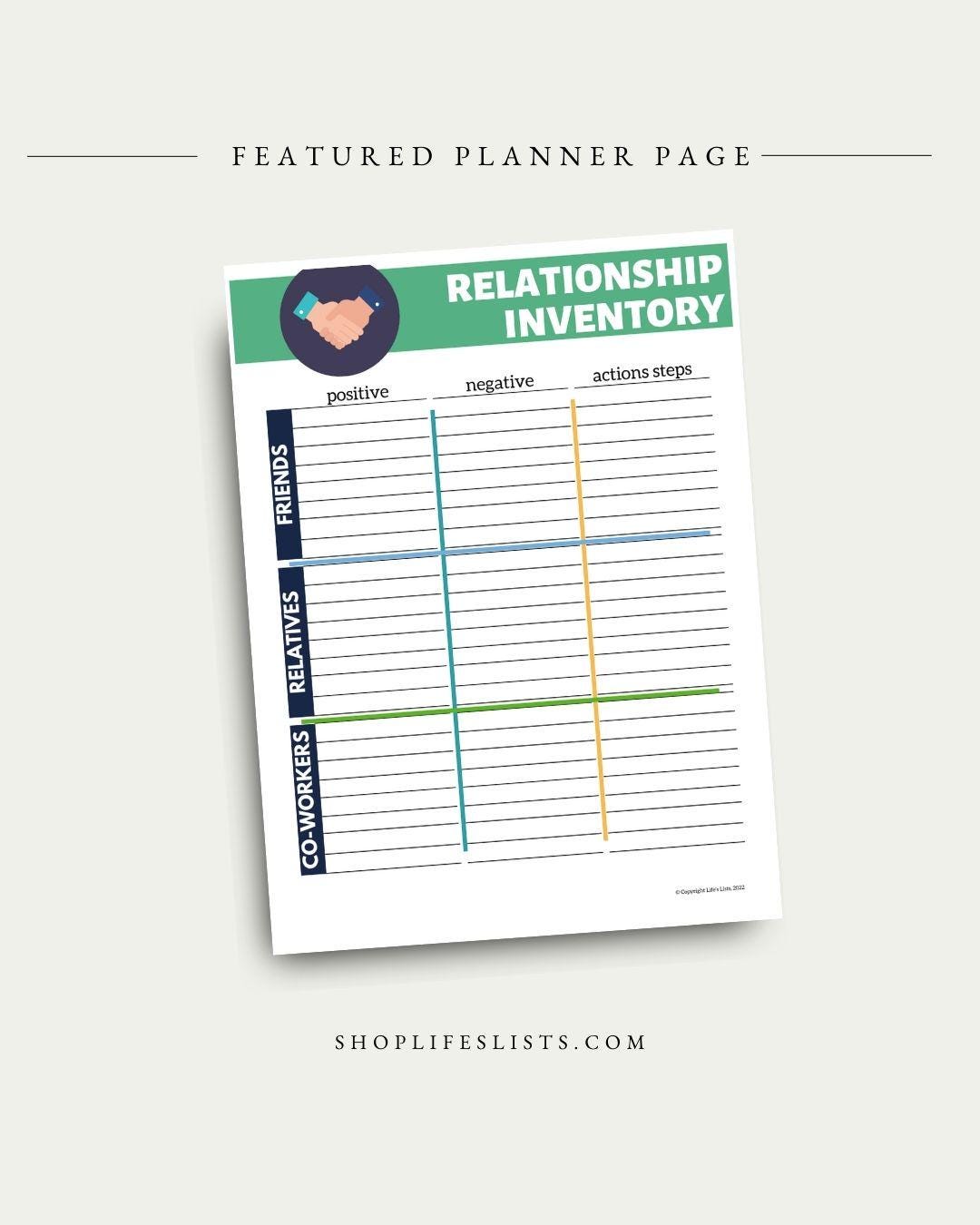
Tools to Support Your Journey
I created the Home & Life Declutter Workbook to help you dive deeper into organizing your life. It includes practical templates like:
- Office Declutter Tip Sheet
- Paper Purge Guide
- Home Filing Tabs
- Tickler File Tabs
- Digital Organizing Checklist
- Bill & Expense Trackers
- Task & Daily Lists
- Password Log
These tools are designed to simplify decision-making and provide structure so you can focus on what matters most.
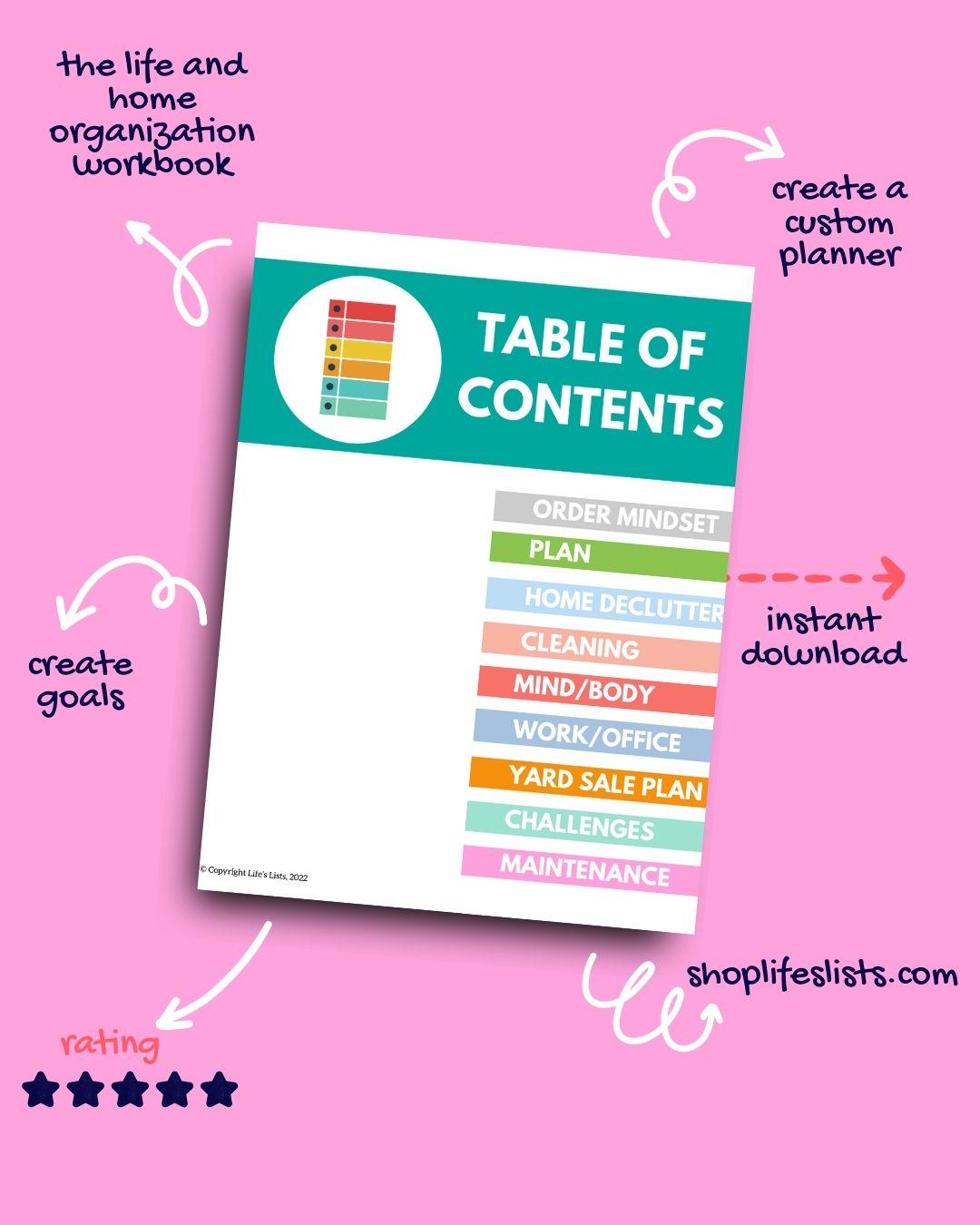
Final Thoughts Finding work-life balance isn’t about perfection—it’s about intention. When you make space for what’s important, the rest becomes more manageable. Start small, build systems that support you, and keep revisiting your routines to ensure they serve the life you want to lead.
Happy Organizing!
Kristin
Kristin Vander Wiede is a Professional Organizer and owner of Livable Solutions Professional Organizing and Life’s Lists, creators of printable organizing labels, systems, and activities.

